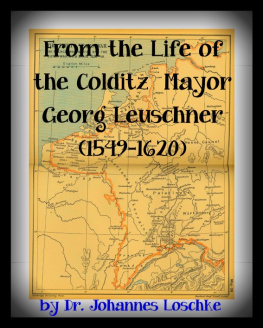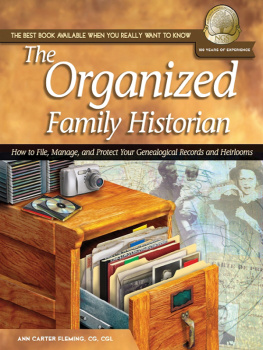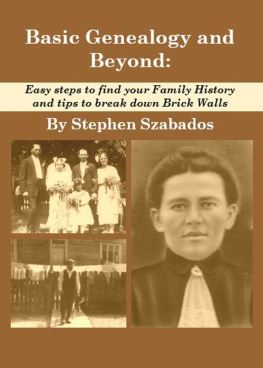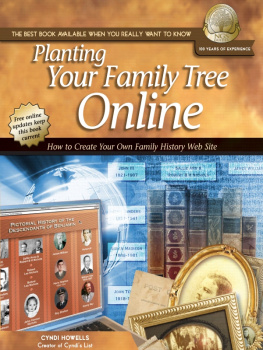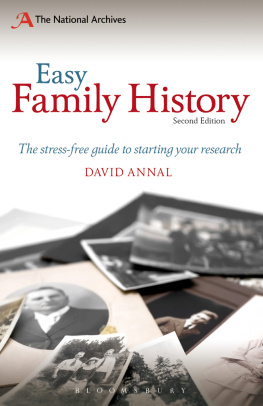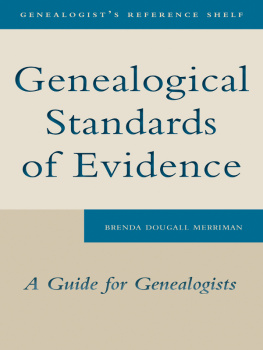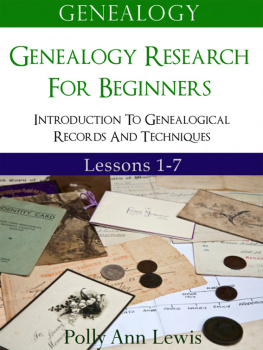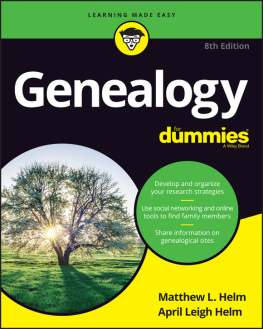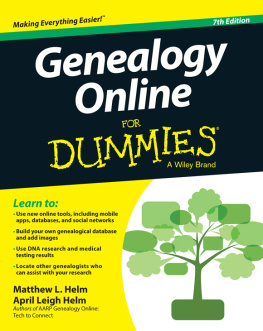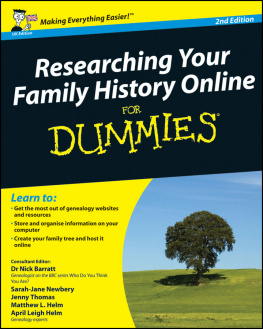From the Life of the ColditzMayor
Georg Leuschner
(1549-1620)
A GenealogicalAbstract
By Dr. JohannesLoschke
SmashwordsEdition
Copyright 2014 BroomhandleBooks
All rights reserved. No partof this publication may be reproduced, scanned, distributed ortransmitted in any form or by any means, or stored in a database orretrieval system without the prior written permission of thepublisher. All inquiries should be addressed to
For eword
Genealogical research has been improvedand facilitated greatly by the growth of online software andplatforms for creating family trees. Along with that, the sharingof previously family only documents has become common. As ourancestries began to link and correspond with those of people wepreviously had no idea even existed, many of these private andexclusive documents began to come into public view.
When Broomhandle Books received thismanuscript via e-mail, we agreed to publish it with theunderstanding that it may become useful to others searching forbackground into the Leuschner family.
The manuscripts presented our in ourGenealogy series come in many forms. Some are the gathering ofcorrespondence by family members, some are longer manuscriptscontaining the more intimate details of family life from theperspective of individual members, and, in a few instances, are theresult of actual scholarly research into a familyspast.
In any event, we believe these pieceswill offer useful insights as individuals continue to search theirbackgrounds for more and more substantive material about their ownfamily background.
The Editors at BroomhandleBooks
July 10, 2014
From the Life of the ColditzMayor
Georg Leuschner
(1549-1620)
INTRODUCTION
Dr. Johannes Loschke was a directdescendant of the subject of this genealogical abstract: GeorgLeuschner. Loschke lived more than 350 years after Leuschner, buthad enough material from the familys own archives to delve intohistory on a solid footing.
It must be noted that in a passage fromthe eulogy prepared for Dr. Loschkes own funeral, titled Payinglast respects, one finds a summary of the history of thisgenealogical undertaking and a generous dose of the race doctrinesand enthusiasm for genealogical research so common in the ThirdReich.
MAIN TEXT OF THEGENEALOCIAL ABSTRACT
As we know today a Jacob G. Leuschnerlived as a contemporary of Martin Luther in Wendishain nearLeisnig. He was called Georg. In his town he held the office ofcourt juror (at a Lay assessors court or court of jury). He musttherefore have possessed a special degree of trust from his fellowcitizens.
Between the years 1502-1535the Wendishain Mill belonged to him, which was only sold after hisdeath in 1535. In order to be able to take care of his impressivegroup of children, he probably attained the special privilege tokeep and maintain his linen weaving chair (loom) in addition to hisjob as miller. He married twice. Three sons named Jacob, Hans andJorge from his first marriage, the last son of that union havinglived around 1567 in Grabenz under the ruling House of Anhalt . Twodaughters joined the sons, of which one married Kilian Windisch inNaundorf and the other married Melchoir Finke in Wolfsdorf. Fromthe second marriage of Georg Leuschner came two sons, Hans andGeorg.
His second wife Margarethe survivedhim. At first, she kept the mill of her husband in jointinheritance with his children. But with time, unpleasant argumentsand law suits arose between the joint inheritors. Those came to anend on September 14, 1967, when the mill was sold to Brosius Kunzfor the sum of 600 Gulden (guilders) [compare court records LeisnigNr. 8, page 74]. And it wasnt until about a century ago that themill gave way to an impressive new building which was placed on theproperty perpendicular to the front of its predecessors.
The children of the Weindishainer courtjuror were not any less ambitious professionally than their father.That is already shown by his eldest son Jacob. Prior to 1549, hemarried a woman by the name of Reuchelin from a well-respected andwell known family in Waldheim. He advanced to the position of Mayorof Waldheim and, as such, he was still described in 1599 in theWaldheim town records. Soon thereafter he must have died at anadvanced age. Unfortunately, the city archives of Waldheim do notcontain further details of his duties as mayor. In any case, hiseulogy showed that in his house music was at home. On the keyboardof the home, probably a cembalo, the children discovered theirmusical talents. His son Georg first learned the trade of linenweaving. But since he was said to have a good mind, his fatherboarded him with good friends in Dobeln, where he could beinstructed thoroughly in writing, arithmetic and singing to thedegree to which this was possible in Waldheim.
Dr. Christopher Leuschner,another son of the Waldheim mayor, could have been the subsequentcourt physician of the Electors House of Saxony in theGerman Empire, who observed together with the court pastor, Hoevon Hoenegg , a somnambule(sleepwalker) in Freiberg.
We are far better informedabout the development of Georg Leuschner than about his fatherJacob Leuschner. Georg was born in 1549 in Waldheim. His musicaltalent and quick mind allowed him to exceed the expectations setfor him. After a thorough education, in 1570 at the age of 21 heobtained the position of church organist of Colditz . In the same yearhe married Barbara Schilde, daughter of the Colditz citizen JacobShilde. She gave him six sons and six daughters during their 36years of marriage, a union which was said to have been Christian,peaceful and fertile. One son saw the light of day in 1573, ayounger son Johann Georg was born on 26 January 1589. One daughtermarried a person named Felgenhauer.
The professional career ofGeorg Leuschner showed his inherited striving to get ahead.According to A. Haufe, who refers to Rautenstrauchs work on Lutherand the Cultivation of Church Music in Saxony, Georg Leuschnerbelonged as organist to the church choir of Colditz , which wasestablished in 1589. Entries in his hand as well as those of hisson and grandson can be found in the records of the church choir.In additional to his position as organist he also held for 12 yearsthe office of Kollaborator in the school and church service. In1586 he became a church father (elder) and was in charge of thecommunal box (money box), an office which he held for 14 years.And, in keeping with that office, he became the founder of the newchoir of the Colditz city church in1589.
In 1592 (later recordsindicate it may have been 1589), he was asked to join the citycouncil. And, in 1599, the grandson of the Wendishainer court jurorbecame city judge. In 1612, the son of the Waldheim head of thecity himself became the mayor of Colditz .
The musical overture of his career leftits imprint on its later development. The Sunday organ playing wasstill the task of the mayor. His death in 1620 terminated thisunique 50 year long capacity as church organist. As a mayor itmight have been easy to help the abovementioned church choir ofColditz to flourish. A. Haufe reports about this in a the churchchoir records 1936, Nr. 12. The city council probably made a giftof the Psalms by Heinrich Schutz to the church choir, based on themayors suggestions. Such gifts might also have included thepublished Musae Siniae by Micheal Pratorius, the Opusculum Novum byVulpius and works by Jacob Handl. And, he was probably influentialin having the church choir festivities held alternately at themayors, ministers and choir masters houses; only the latter twohouses had customarily been used.
God gave him, as his eulogyindicated, good nourishment and a rather appropriate income. Thismade it possible for him to further the education of his children.He sent his son Johann Georg, without taking advantage of stipends,in 1603 to the Electors County School in Grimma for the durationof the 4 1/2 years; thereafter he studied at the University ofLeipzig. But, already in the first year of his university studiesthe financial situation of the city judge worsened. The Black Plague broke out in destructive furor in 1607 in Leipzig as well asColditz. One of its victims was Barbara Leuschner. The death ofGeorgs lifelong companion, the Plague and the subsequentdiminished resources as well as other setbacks a big fire wasreported at the house of Georg Leuschners daughter prohibitedfurther financial support for the son studying in Leipzig, so thatson was forced to quickly stand on his own two feet.
Next page
